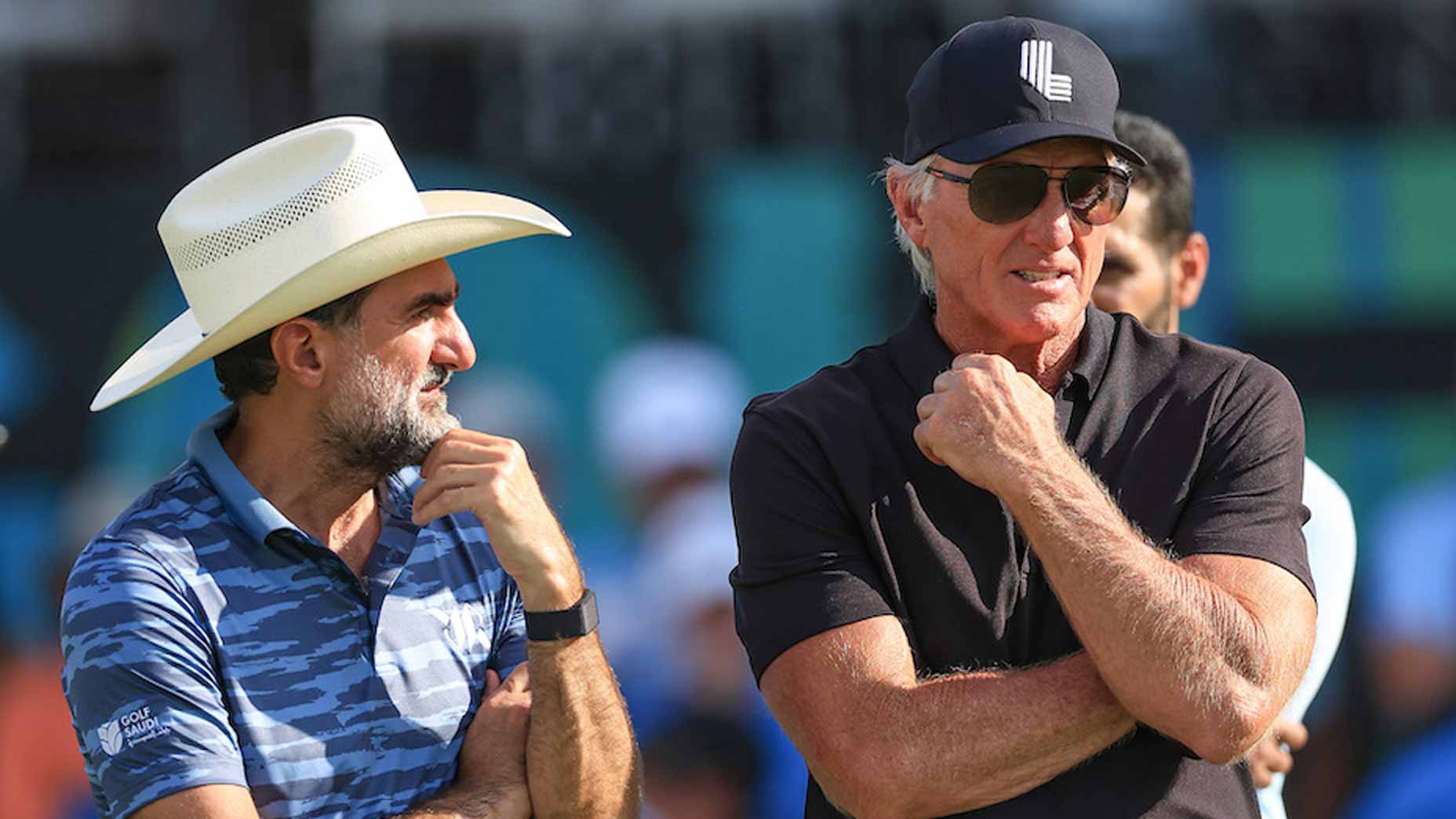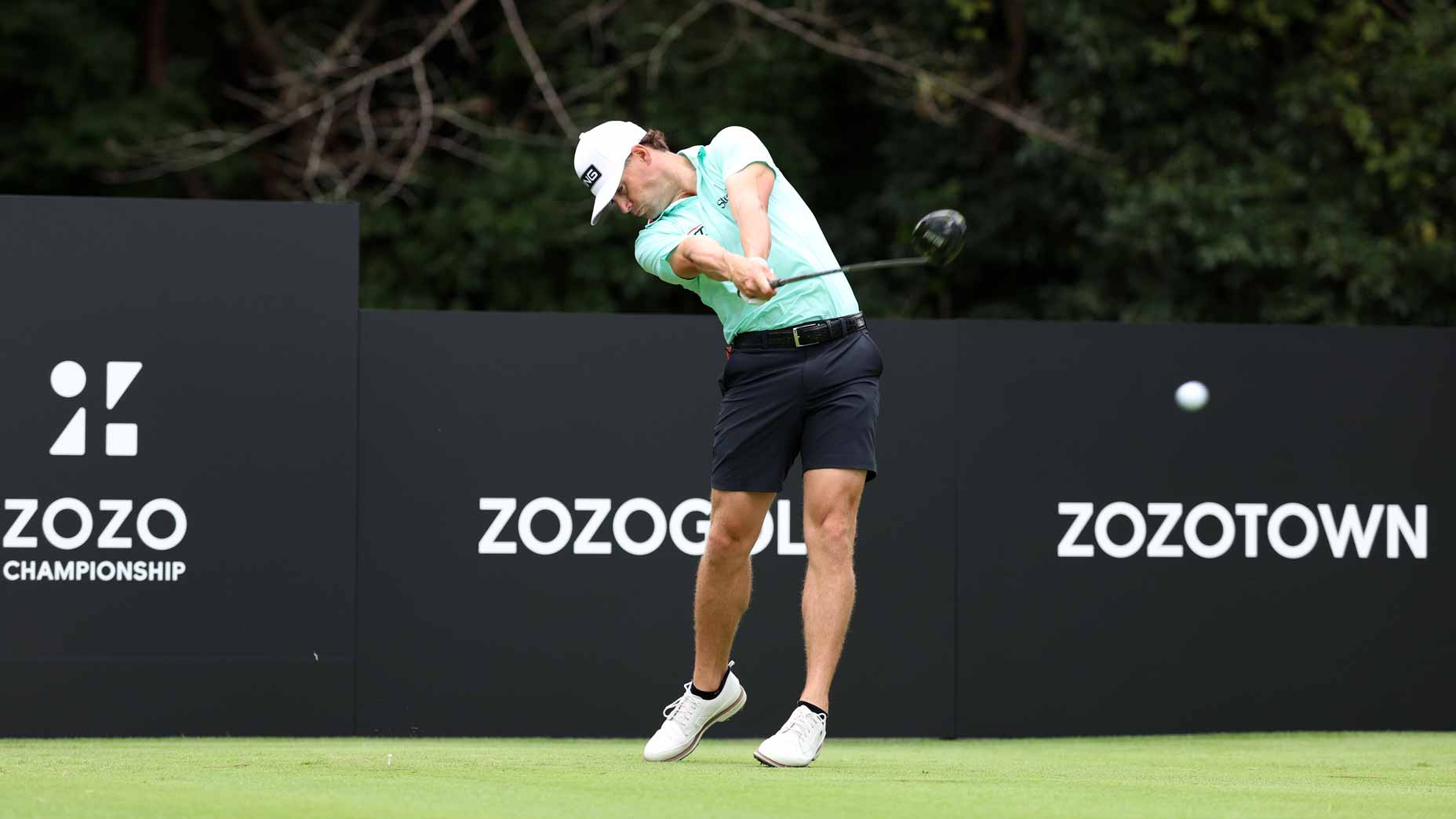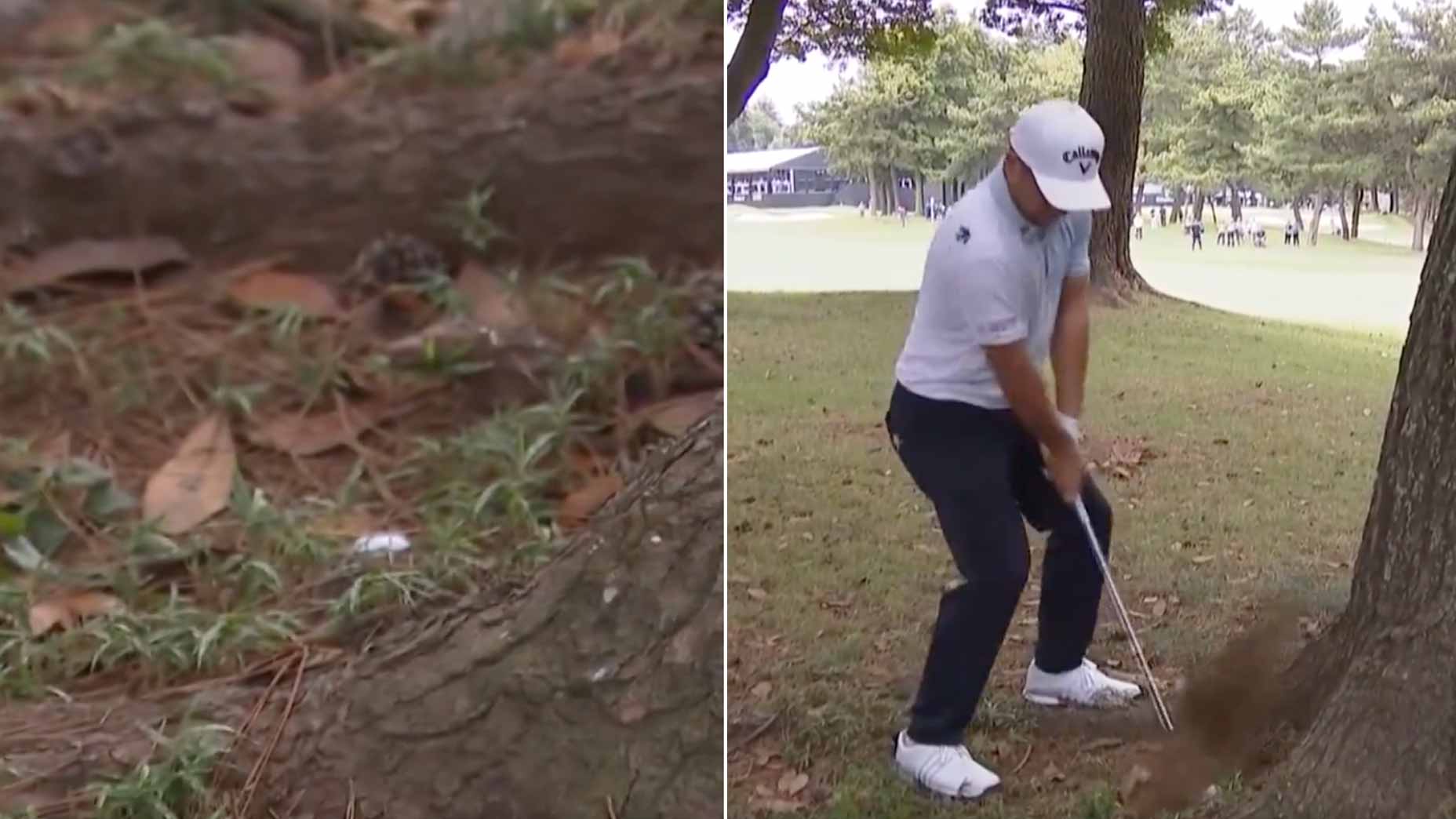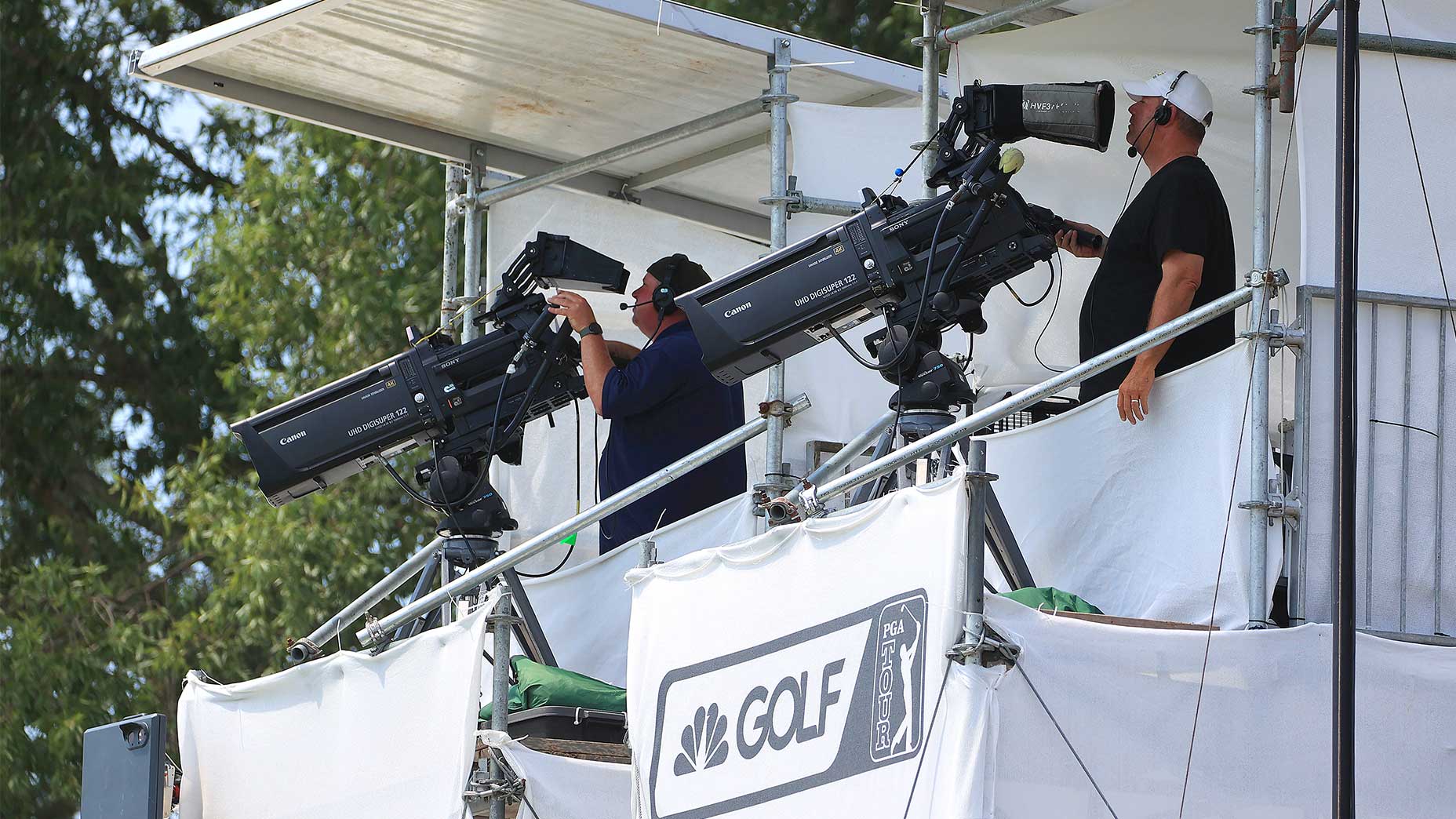 LIV just dialed back its Q School. Here’s what that could mean
LIV just dialed back its Q School. Here’s what that could mean
Tour Confidential: What will be the biggest impact of the Tour and Masters layoff?

Check in every week for the unfiltered opinions of our writers and editors as they break down the hottest topics in the sport, and join the conversation by tweeting us @golf_com. This week we discuss the impact of the PGA Tour and Masters layoff, how the PGA Tour handled the week, what golf fans should do over the break, and more.
1. The PGA Tour and Augusta National Golf Club joined a host of other sports organizations last week in either canceling or postponing events due to the coronavirus. The Tour announced Thursday that it was canceling the remainder of the Players Championship and the next three tournaments, and on Friday, the Augusta National Golf Club said it was postponing the Masters. What will be the biggest impact of the Tour/Masters layoff?
Sean Zak, senior editor (@Sean_Zak): Hmmm. Tough question to answer because so many industries are affected, but I’ll say the lesser-paid factions of professional golf could be greatly impacted. If this layoff extends beyond the initial announcement (and I think that is very reasonable to expect), people like LPGA Tour players, Korn Ferry players, Ladies European Tour players, etc., will potentially look for other means of income. It’d be like they’re all in a missed-cut drought, and it’s not up to them to play their way out of it.
Josh Sens, senior writer (@JoshSens): Right. The impact will be felt most when you get beyond the Tour stars to the third and fourth degrees of separation. Not just the lesser lights and the other circuits. The charities that benefit from the events. The local businesses that see a boost every time the Tour comes through town. Hotels. Caterers. Event planners and on. As Clarence tells George Bailey in that Christmas classic — each life touches so many others.
Alan Shipnuck, senior writer (@AlanShipnuck): The CDC just recommended eight weeks until any large gatherings can be held. That puts us to at least the PGA Championship. I’m feeling like there might not be meaningful golf the rest of this season. The economic impact of that is going to be severe, for the reasons noted above.
Dylan Dethier, senior writer (@dylan_dethier): Well put by all of the above. I’m feeling glum, so let’s think of the tiniest sliver of silver lining: On some future day when this starts to slow down, we’ll have golf to look forward to. We may even have Olympic golf, and a tiny hope of a fall Masters. Golf will matter again then, and dang will we be excited for its return.
Michael Bamberger, senior writer: In the long run, in the grand scheme of things, this is of course a blow to a game we all like or love, but a dent in the economy, in golf and beyond.
2. It’s important to note that Augusta National has only postponed the Masters, not canceled it. How likely is it that we’ll see a Masters in 2020, and if it is played this year, what would be the most likely dates for the event?
Zak: I’ll lead off with the most obvious and optimistic answer. Yes, it will be played this year, and mid-October. Two weeks after the Ryder Cup. As many people know, the course is typically not open during the summer due to the hot southern climate. So give the overlords at Augusta the month of September to prep the course and give us that fall Masters. It’d be a memorable one.
Sens: Autumn in Augusta. Talk about an off-brand Masters, like baseball holding the fall classic in spring. I’ve been wrong a million times before, but I predict the next Masters we watch will be spring of 2021. I hope the show can find a way to go on, especially for a local economy that depends so much on the tournament. But I think the uncertainty of the current climate — combined with the flat-out weirdness of a Masters late in the calendar year — will conspire to push things back to the traditional spring date. I’m surprised no one has been pushing the conspiracy that this is all a hoax to give Tiger more time to rest his back.
Shipnuck: I hope Zak is right. October feels like best-case. But if you look at all those charts of infection rates, we could still be dealing with this in the late summer, which is when ANGC would have to be mobilizing, so that might be too soon to make a call. Would the green jackets want a Masters in November and then another in April? That would feel a little weird.
Dethier: Like Shipnuck, I’m stuck in between Zak’s optimism and Sens’ realism. It feels like a 40 percent chance we have some sort of Masters this calendar year. But damn, I’d sign up for fall foliage at Amen Corner.
Bamberger: I fully believe we will have an autumn Masters, and it will be different and wonderful.
3. In a span of about 24 hours, the PGA Tour decided to play the Players, decided to play without fans and decided to cancel it altogether. How do you think the Tour and commissioner Jay Monahan handled things?
Zak: Let me start by saying I do envy not the position Monahan was put in, but he and the Tour definitely bungled the decision-making process. It was a quick one, and with dominos falling every 30 minutes, but where Monahan lost me quickest was his incessant use of certain excuses to keep the Players Championship moving forward while all other sporting events stopped:
“My children went to school this morning.”
“Disney World is still open.”
“Our playing fields are more than 400 acres.”
I’m paraphrasing all those, but that’s what Monahan said, repeatedly. By comparison, LPGA commissioner Mike Whan — who took four hours longer to take action — came out and said, “Yeah, we can probably play … but can I live with it if I’m wrong?”
He had hindsight of many reactions prior to that statement, but damn, did it feel like the right one.
Sens: It came off as another case of golf getting lost in its often exaggerated sense of its own exceptionalism. We’re not like other sports. Non-contact. Wide-open spaces. Underlying some of the delay was the conviction that golf was just different. Which in the case of preventing a virus from spreading, it wasn’t.
Shipnuck: That Chainsmokers concert is going to be Monahan’s Katrina. He had a chance to lead but seemed happier to follow.
Dethier: I still can’t believe a few of the things I saw on the ground last week. Wednesday, players were signing hundreds of autographs. Thursday, even as the Tour decided it was unsafe for fans to be on site the next month, fans were still streaming through the gates and congregating around No. 17. It was impossible to handle it perfectly — I certainly didn’t have a grip on it — but taking no steps to limit fan and player exposure was a big miss.
Bamberger: I’m sympathetic to the struggles of the decision-making. A golf tournament is not a concert or an NBA game — or a commercial airline flight.
ADVERTISEMENT
4. Earlier in the week — and doesn’t it seem like a year ago? — the PGA Tour announced its new, long-awaited domestic media rights deal. The nine-year agreement is with long-time Tour partners CBS Sports and NBC Sports, with the addition of ESPN to the fold as well. How will this deal impact the Tour and the viewer?
Zak: There will be more golf than the PGA Tour fan/viewer is interested in watching. (This might already be the case.) The game will be gambled upon by millions, and more efficiently than ever. In the end, money will pour into that industry, and it will create good demand for the Tour that wasn’t there four years ago. BUT, to the earlier point, if you’re not a gambling fanatic, I don’t know that we’ll necessarily flock to MORE GOLF MORE GOLF MORE GOLF.
Sens: The gambling wave is coming for sure. But I wonder how ready the Tour really is for the full impact when live wagering takes deep root. There are still a lot of unknowns when it comes to ensuring the integrity of competitions. Or at least the perception of that integrity. When every shot has money on the line for someone other than the player and their caddie, a Baba-Booey blurted in someone’s backswing is going to raise all kinds of questions that weren’t in play before. And that will happen. Not a question of if, but when.
Shipnuck: It’s definitely a good thing to have ESPN in the fold. The most troubling aspect is that the Tour is now going to oversee the production, which means more sanitizing of the product. Will the networks even be allowed to show controversial moments? Will there be on-air discussion about thorny issues? There could be a substantial chilling effect, which doesn’t serve the viewer.
Dethier: It means, big picture, more stability for the viewer. Most casual golf fans love the routine of flipping on CBS or NBC on Sunday afternoons and watching a horse-race finish. Even as our entire viewing landscape changes, golf will stay the same. Golf’s not generally on the cutting edge of radical change, so this seems about right.
Bamberger: I think the Tour was fortunate to get the length of the deal it did, because the way we watch is changing so fast, who knows what it looks like five years from now, let alone seven or eight or nine.
5. In one of the least buzzed-about Tiger Woods stories in recent memory, the World Golf Hall of Fame announced that Woods will be inducted in 2021. What can the Hall of Fame do to generate more excitement around its inductees?
Zak: Have a wider array of voters and publish the results, a la baseball. Our own Michael Bamberger is on the panel, and I didn’t even know about it! Maybe that says something about me, but really I’d like to see the debate on who’s in, who’s out be more of a story. Barry Bonds feels slighted, and he informed the media of that. I want the best golfers in the world who aren’t in the WGHOF to make their thoughts known, too. That’ll make us talk about it more and amp up the excitement.
Sens: Wait a little later in a player’s career. Sure, golf doesn’t have the same kind of hard-stop retirement as other sports. But at least go for a little bit of delayed gratification. Hall of Fame inductions in other sports have more built-in excitement because they bring stars back into the spotlight after they’ve vacated the stage. Hard to get too excited about Tiger giving a Hall of Fame acceptance speech when he still has a good chance of doing something much more captivating on the course.
Shipnuck: Be more selective and announce only every three years. The inductees have become increasingly watered-down. Billy Payne? GTFO. Retief Goosen? Really good player but exactly not a legend of the game. If the inductions were held less frequently, there would be time for truly worthy inductees to accrue.
Bamberger: I agree with all of the above. The Hall went from 50 to 45; I’d have suggested going UP to 60. Would increase the importance of a senior career. How about ONE inductee every year. JUST ONE. A female player in year one. A male player in year two. A contributor in year three. One would get some attention, in the debate, in the announcement, in the induction.
Dethier: Not to oversimplify things, but Tiger making it to the Hall was such a mortal lock it doesn’t even bear mentioning. We do plenty of celebrating of the guy’s career as it is, and we’re eagerly awaiting updates on his health and his next performances. I’m far more interested in the other inductees than Woods’ selection. Maybe take a cue from the other leagues and wait three years after a golfer quits playing the PGA or LPGA full-time.
Golf fans are looking at a minimum of four more PGA Tour-less weekends. In lieu of watching golf, how would you suggest they spend their time?
Zak: This is a layup for me! Season Two of A Pod Unlike Any Other begins Monday with Tom Watson’s riveting 1981 victory over Big Jack and Johnny Miller. We rewatch the final round of Masters broadcasts for you and break down the historical relevance, the kooky outfits, the underrated moments of failure, etc. It’s all in the purpose of loving the Masters, and right now it’s about all we’ve got.
Sens: Play more golf. Responsibly. Follow public health guidelines but get out there when you can do it safely. It’s good for the courses. And for your state of mind.
Shipnuck: Yeah, just leave the pin in and avoid handshakes and I think golf is a great option. Hopefully many/most courses will be able to stay open. Golf also has a long literary tradition so there are tons of good books out there to read. And a Pod Unlike Any Other is definitely a must.
Dethier: For starters, order Michael Bamberger’s book “The Second Life of Tiger Woods.” But that’s not out until the end of the month — until then, I’d recommend catching up on more than a month’s worth of Muni Mondays! From a Phil Mickelson junior haunt to a product of the Great Depression to the best public par-3 course in the world, they are some of golf’s best goodness. Public golf: it’s where it’s at!
Bamberger: Can’t tell you how much I agree with Dylan. So true, but did you not learn at Williams College or on your path there not to end sentences in prepositions? Play, read, watch. Walk, be outside. Turn off your screen. Work on your grip. Leave the pin in.
To receive GOLF’s all-new newsletters, subscribe for free here.
ADVERTISEMENT








